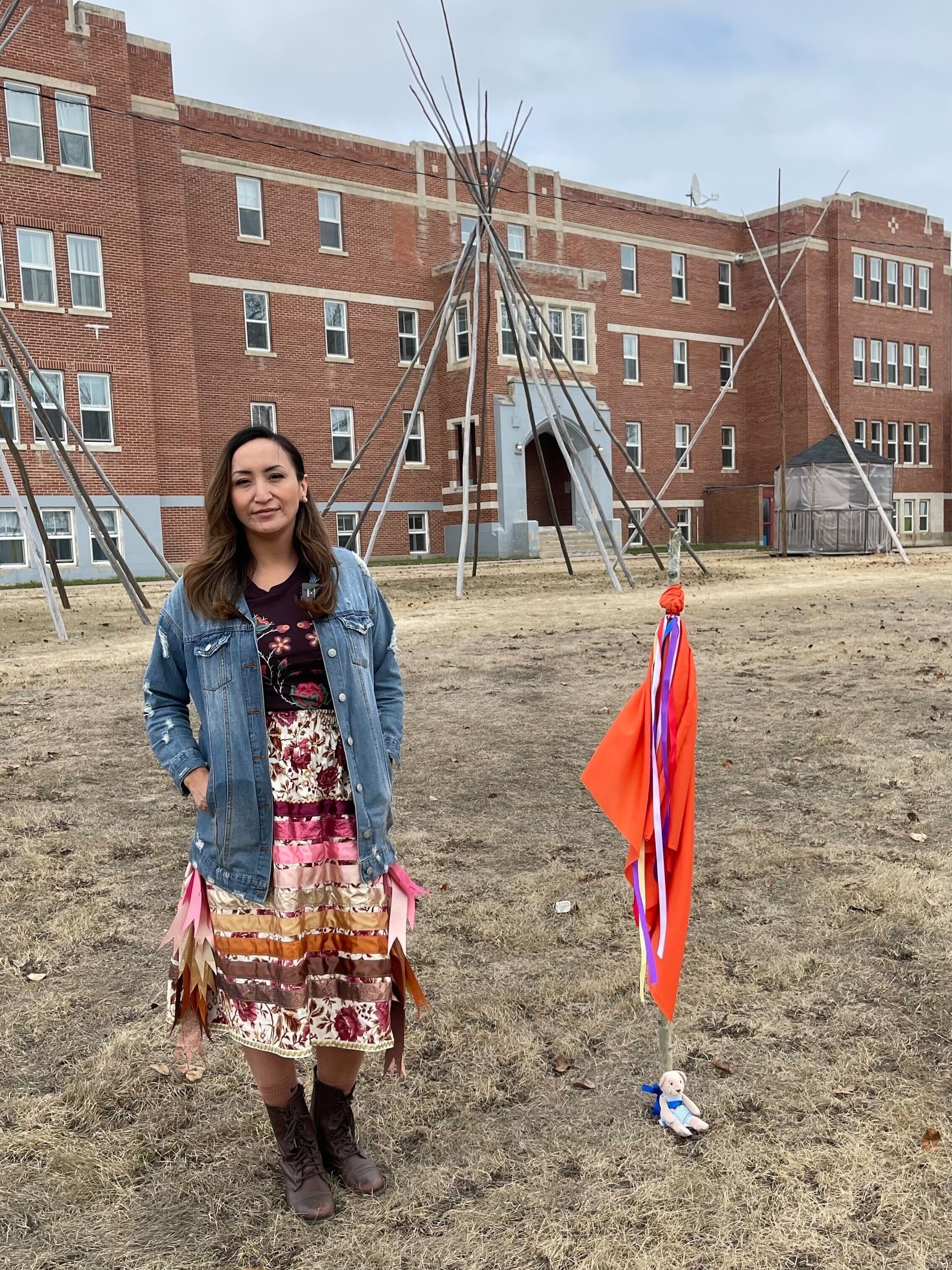Mourning with Our Relatives in Treaty 6 & 8
Yesterday, April 19, our relatives at University nuhelot’įne thaiyots’į nistameyimâkanak (Blue Quills University) announced the results of the first of a four phase ground search for our children who went missing from the former residential “school”. A penetrating radar search has identified 19 anomalies as reflections of interest, meaning they have traits consistent with burials but more analysis is needed. The 19 anomalies have been found on 1.4 acres of land during a search for unmarked graves at the site of a former residential school northeast of Edmonton, Alberta.
We lay tobacco down for our communities impacted by the news this week, as well as the countless survivors and families across so-called Canada who continue to face the intergenerational impacts of these atrocities. The legacy of Indian Residential “Schools” is a painful tragedy that we carry as Indigenous Peoples, but it is also part of a continuing legacy of colonialism in so-called Canada.
“As we experience the news across this country with the results of the searches for burial sites we are reminded that this can be an opportunity for healing: many of our survivors have not shared their stories and Indian Residential School (IRS) teams need to understand it’s critical we create opportunities for trauma informed approaches that honour our Indigenous practices and ceremonies. This is a time where we can create the space to mourn and honour our children who attended IRS and our survivors and their families. We can do this by coming together collectively and provide loving and nurturing spaces for people to lift one another up during these hard times. I believe that ceremony is the foundation to this spiritual work.”
Terri Cardinal, IRS Project Coordinator
About The Indian Residential School Project
Blue Quill’s Indian Residential School project was created to search for unmarked graves at the St. Paul site, a former Indian Residential School. The University has been working with an Indigenous-led search team, headed by KIsha Supernault, from the University of Alberta and has been guided by the Chiefs of the seven Nations that collectively own and govern the reserve lands and the University which operates there: Beaver Lake Cree Nation, Cold Lake First Nations, Frog Lake Cree Nation, Heart Lake First Nation, Kehewin Cree Nation, Saddle Lake Cree Nation, Whitefish (Goodfish) Lake First Nation.
Support Available
Like us, you may be having a hard time navigating the emotions and pain that come with these announcements. We honour you. Please know supports are available including the following:
The National Indian Residential School Crisis Line provides 24-hour crisis support to former Indian Residential School students and their families toll-free at 1-866-925-4419.
First Nations, Inuit and Métis seeking immediate emotional support can contact the Hope for Wellness Help Line toll-free at 1-855-242-3310, or by online chat at hopeforwellness.ca.
Notes for Settler Allies
To many of us, the word reconciliation has become a red flag. A marker that allies are skipping over the hard truths of on-going colonial violence in so-called Canada, attempting to skip to the part where they can say they live in reciprocity with our Nations without fully acknowledging the truth work that still needs to be done.
Reconciliation without Truth is only an empty gesture. Empty words - like a land acknowledgement without supporting Land Back. We need more than words. We need more than land acknowledgements and we need more than reconciliation.
We need our inherent rights and sovereignty to be respected, not just for us in so-called Canada, but for our Indigenous relatives across the globe. We need our traditional practices and governance systems to be respected and upheld. We need our land reparations and we need Land Back.
These may seem like big tasks, but they are attainable.
“We can start by ensuring that all our communities be granted clean water and adequate housing and health care, and the respect of our Free, Prior and Informed Consent and the power to determine our own fates and our right to say no to projects, plans and policies that affect our people and lands. We need to be talking about land reparations and ensure that not just our babies are returned but our lands be returned to our communities for healing, for justice and to begin to repair that last 500 years of subjugation, dispossession, and genocide.”
- Eriel Tchekwie Deranger, Reflection on Our 215: It Could Have Been Us



